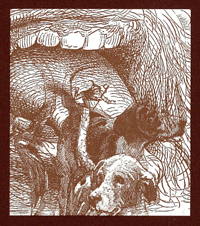
Rabelais and His Critics
Natalie Zemon Davis’ “braided histories” emphasize the importance of mixtures, a kind of interdisciplinary take on literature and history here put into play around Rabelais in the essay “Beyond Babel: Multiple Tongues and National Identities in Rabelais and His Critics.” According to Davis, scholarly interpretation tends to characterize the movement of texts and writers as toward something or away from something, in support of or against something else, when in reality the two movements often exist in necessary relation. In a presentation that introduces and complements Davis’, Timothy Hampton shows how recent Rabelais scholarship has gone beyond some of the traditional debates and intellectual polarizations toward a recognition of the hybridization or interplay of the text.


